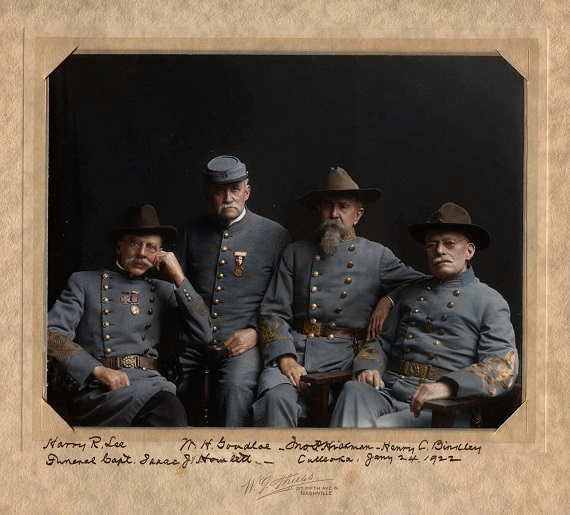Abbeville scholar Clyde Wilson recently received this charming from Ms. Joscelyn Dunlop of Edenton, North Carolina. It neatly ties together Southern life in the WBTS, the 1930s, and today.
Dear Dr. Wilson,
Just a line to let you know what a pleasure it is to read your columns in my favorite magazine, which seems astonishingly like the
late lamented SOUTHERN PARTISAN—- in fact I found many familiar names in it. (Even yours!) when I subscribed to CHRONICLES. The nicest part of your magazine is its re-readability. So it was I was re-reading your amusing vignettes of seeing various presidents momentarily. I thought you might like my instant glimpse of FDR.
It was back in ’34 or ’35, during his first term, when I was 10 or 11. Yes, yes. I know that makes me not just old, but Very Old. On the other hand, my brain isn’t addled and I have a good memory. So——
I grew up in Roanoke county, Virginia. A beautiful part of the world, but not known for attracting important politicians. It marked the first time a sitting president had ever appeared in the county, and, indeed, so far as anyone could recall, the first time any president had ever bothered to come, excepting one G. Washington, who, as a young man had inspected the line of forts built to contain the fierce local Indians. He had even spent the night at Ft. William, in what became Roanoke county. (I was privileged to have had the forts many unusual features explained to me by the owner of the property, during various visits. But that is another tale…)
Roosevelt was coming to Roanoke county to preside at the official opening of a new VA hospital. It was located between Roanoke and Salem, but Salem claimed it, as it was closer. We heard that he would be driven up Salem’s Main Street, but very fast, as (supposedly) there had been a death threat. So Salem’s population decided to converge at the corner of Main and College, where the sharp turn would require a slower speed.
The right side of that corner was occupied by Dillard’s Drugstore. Mr. Dillard, an ancient and opinionated gentleman, liked Grandmother, because (or so I was told) he and her father had served in the War for Southern Independence together. So he invited Grandmother (“and family”) to view the “parade” from his side yard, his home being just behind his store, but on College Ave. This was a truly coveted invitation, for his yard was some four feet higher than the adjoining sidewalk, so that no matter how many gathered on the corner, the view would be unimpeded.
Thus, Grandmother and I were in a favored location for the great event. Shortly after we arrived, two rocking chairs from the Dillard porch were placed in the middle of the yard. Soon they were occupied by two Confederate veterans, who lived in a nearby Veterans Home, and old friends of the host. One was frail and had to be helped to his chair, but the other walked with an easy stride that called to mind Stonewall’s “foot cavalry”. They were much feted by all in attendance.
In no time, it seemed, snorting motorcycles announced the coming of the president. Immediately ahead of his car was a large flatbed truck with three men standing behind large motion-picture cameras, such as those shown at the end of every Pathe news bit shown in the local movie houses. One faced the left side of the road: the second, the right side: and the third faced the big open car in which FDR and several local politicians were riding.
The president was smiling. He was seated on the right side of the back seat, and was vigorously waving his broad-brimmed hat, which he held in his right hand.
Just as his car was right in front of us, I heard a noise from the two Confederates. It started low and ended up high, and was the loudest sound I had ever heard two men make. Shoot, louder than any two teenage boys could make -and it sounded sorta scary, too.
I was standing next to Grandmother, and I whispered to her, “What are they trying to do?” She swung towards me, winked, and replied “That was a Rebel Yell!”
As the entourage disappeared in the distance, a surprising number of the assembled crowd wanted to know the meaning of that outburst, (it seemed there were a lot of people who knew a Rebel Yell when they heard one and they wanted to know what was actually meant by the shout). The old Rebs just smiled. They did not enlighten.
And so, in later years when I thought about that long ago incident, I decided that I had probably heard one of the last Rebel Yells by authentic Confederates (in a possibly hostile manner).
Sincerely,
Joscelyn Dunlop







